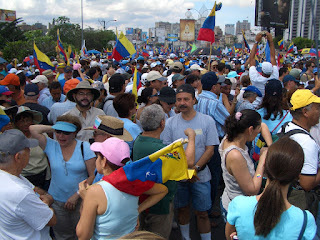I begin 2008 with an old entry; a composition written by me, about me and for me. It was the way I saw myself at a certain moment in my life... The CLIMBER
You ask me: Do I know who I am? Can I define the person I want to be with?
I answer: I know where I stand right now, the route I have chosen to travel in my infancy, youth and adolescence. Looking back over the terrain from a mountain top I know where I could have avoided tripping, a wrong turn and a long hard trail. I can see a cave where I would have slept warm and dry during the storm and a beautiful waterfall I missed along the way. Yet, I can also see that I pitched my tent in the perfect field, I enjoyed many campfires singing along friends and I took my time to appreciate the scenery.
Today, the day is clear. Clearly, I can see where I faltered and succeeded standing on this mountain of experience. I expect I haven’t reached the top, but I know I am not standing at the bottom. I also expect the weather will change and some days will be cloudy, others warm, still others clear, like today.
So, you think: So what can she answer with certainty?
I respond: I can say with certainty that life, to me, is an adventure, a steady climb to the top of my potential. To others it may be a sky-dive, a roller coaster, a chess game, a slow dance, a constant party. And because I choose to climb, the people who walk beside me are also climbers, adventurers, nature lovers, bird watchers, wanderers, nomads. That’s the constant, the certain thing, the ambition, thirst that drives us to continue to move forward, see more, farther, from a higher place; the highest place; the pinnacle.
I can say with certainty that death is a transition; it is but the separation of this adventure from the next. It is a clean slate, clear plate, the starting place of a new race. If in essence (in your soul) you are a climber, then you will stand before the next high mountain and the people around you will be familiar; climbers, adventurers, nature lovers, bird watchers, wanderers, nomads, your family. If you didn’t learn from your mistakes, you will inevitably trip again, miss a turn, sleep under the storm and in your soul you will know it is not the first time. If you did learn, then your mistakes will be entirely new, small adventures to overcome within the climb of life, the biggest adventure of all.
You ask, what about love?: Love is what I can be most certain about because I create it. It starts with accepting my self, my essence, my thirst to climb and see beyond the next cliff. Accepting that I will never be comfortable because of my insatiable need to be better, move faster, go higher. When I accept myself, I accept my adventure and truly appreciate the company. No one can carry my bag-pack, fill my canteen and step over the rocks on my path.
And within the many climbers I may find that one person I choose to walk with. In time he may become the person who I sit next to around the campfire and tell my secrets to. The person, who gives me warmth at night, looks for me if I loose my way, worries when I stay out in the rain. We walk side by side, sharing, but not burdening. Knowing that each climber must choose a trail, a pace, a resting place and that company is not an obligation, but a gift.
In answer to your questions: I am a climber, an adventurer, a nature lover, a bird watcher, a wanderer, a nomad and so will my final partner be.




